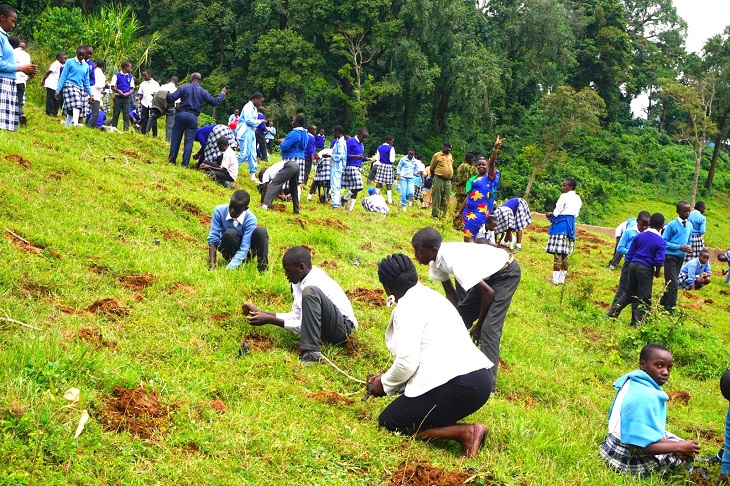In a region long known for its rich soil and at times, its deep-seated ethnic tension, an agroforestry initiative is quietly working to restore both land and trust.
From Degraded Fields to Green Canopies
Earthtree’s Regeneration Kenya project is establishing agroforestry systems across thousands of hectares in counties like Uasin Gishu, Elgeyo Marakwet, and Trans Nzoia. Phase 1 spans about 3,500 ha, with a long-term vision stretching to 26,000 ha, supporting roughly 4,500 smallholder farmers planting some 40 million trees.
Rather than imposing new ownership, Earthtree emphasizes partnership, providing seedlings, training, and ongoing support while farmers retain full land control.
Jobs That Flourish Locally
The planting drive is already creating meaningful work: roughly 70 local staff run the Eldoret nursery. Over time, as nurseries, plantings, and processing expand, up to 1,000 jobs are expected across the region.
County farmers’ chair Ruth Kemboi testified to the economic impact: “A lot of local jobs have already been created… we want to see those jobs stay in the region.” Beekeeping programs aligned with agroforestry offer an additional income stream, especially for smallholders.
Environmental Resilience: A Waiting Game
A forest doesn’t grow overnight, but the payoff comes over the years. Mature tree cover can restore watershed function, boost soil health, sequester carbon, and stabilize microclimates.
Earthtree chooses indigenous, drought-resistant species, like acacia, neem, moringa, and tamarind, to ensure trees are suited to local ecosystems. That planning avoids the pitfalls of one-off, short-lived plantings.
Community, Not Contracts
Concerns have surfaced over transparency in carbon‑credit deals. In Uasin Gishu, some farmers said they didn’t fully understand contract terms. Earthtree responded by opening dialogue, consulting with farmers directly, and even offering to replant failed saplings.
This emphasis on consultation and responsiveness reflects a deeper ethos: projects grounded in relationships, not bureaucracy.
Planting Peace Alongside Trees
Perhaps the most profound, and less visible, result is social healing. In areas historically affected by tribal conflict, employment in Earthtree’s project is acting as a common ground. People from different communities are working together, side by side.
As one community elder put it, “In a place where tribal tensions run deep, Earthtree brought employment without bias. They helped my nephews and their neighbours from different communities work side by side.”
In fragile regions, meaningful work can be a bridge when people share goals, share income, share progress, and old divides begin to erode.
Looking Ahead: Growth, in Every Sense
Currently, Earthtree is at an early but critical stage. The seedlings are in the ground, nurseries are operating, and communities are engaged. The real test comes in the years ahead when saplings grow into canopies, yields rise, and trust takes root permanently.
For those tracking Kenya’s environmental and social future, Earthtree offers more than a planting campaign; it offers a model. Grassroots regeneration that nurtures soil, income, and cohesion, in equal measure.
In time, these trees will mature. But the work we see today, the soil prep, the jobs, the dialogues, these are the seeds of something deeper: a regenerated landscape and a regenerated peace in Kenya.
Related Content: We Were Not Aware Of Any Construction Inside Ngong Forest – I&M Foundation

